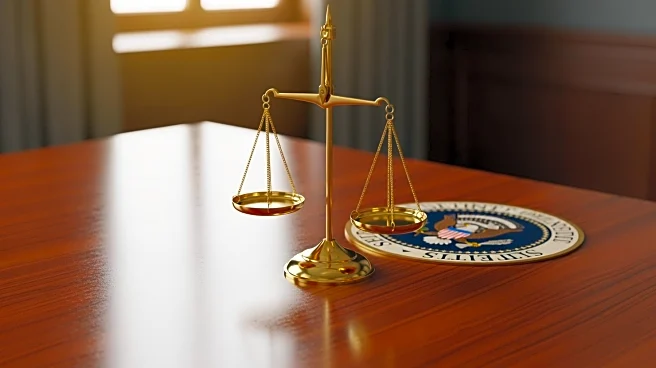What's Happening?
President Trump has exercised his presidential pardon power to issue a 'full, complete, and unconditional' pardon to all U.S. citizens involved in activities related to the 2020 presidential election. This includes actions such as the creation, organization,
and support of slates of presidential electors, as well as efforts to expose alleged voting fraud. The pardon is seen as a reward for those who supported Trump's efforts to challenge the election results and is part of a broader pattern of pardons issued by Trump to allies and supporters.
Why It's Important?
The use of the presidential pardon in this manner raises significant concerns about the potential for abuse of power and the undermining of democratic processes. By pardoning individuals involved in efforts to overturn the election, Trump is sending a message that such actions are permissible and will be protected. This could have long-term implications for the integrity of future elections and the rule of law in the United States. Critics argue that it sets a dangerous precedent and could encourage further attempts to subvert democratic norms.
What's Next?
The pardons are likely to face legal and political challenges, as opponents may seek to limit the scope of the pardon power or challenge its use in this context. Additionally, the pardons could become a focal point in upcoming elections, as candidates and voters grapple with the implications of such actions on the democratic process. The response from political leaders, legal experts, and civil society will be crucial in determining the future of presidential pardon powers.
Beyond the Headlines
The pardons highlight the tension between the constitutional powers of the presidency and the need for accountability and transparency in government. They also raise questions about the role of the judiciary in checking executive power and the potential for political motivations to influence legal decisions. The situation underscores the importance of maintaining a balance between executive authority and democratic principles.















